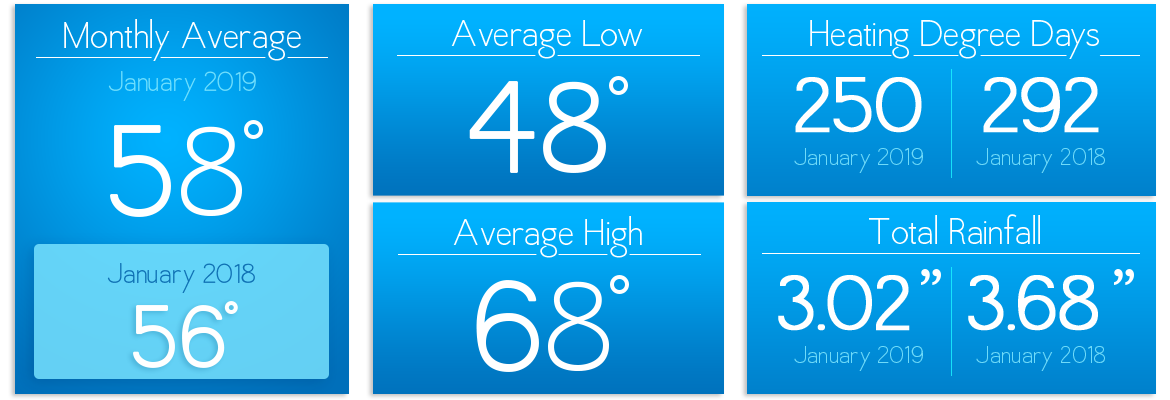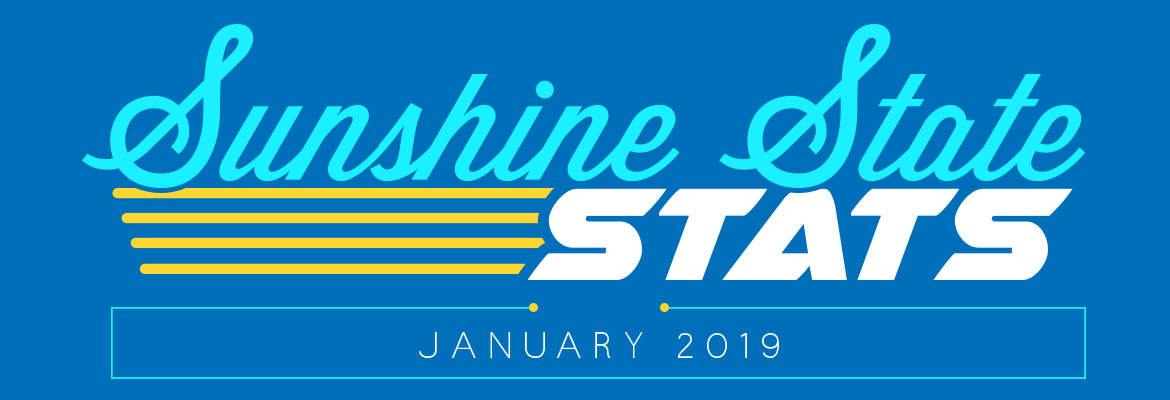Sunshine State Stats, January 2019
January 2019’s average high was 68° and the average low was 48° – a couple of degrees warmer than last January. January’s average temperature was 58°, while January of 2018 had an average temperature of 56°. Rainfall for January of 2019 was 3.02 inches compared to last January at 3.68 inches.

Based on data from the Leesburg weather station, February’s average high will hit around 71° and the average low is 49°. Those averages may cause residents to run heating units overnight and to switch to cooling in the afternoons. Based on the current forecast, Central Florida residents will see some afternoon highs in the low to mid 80s in mid-February. That said, if you haven’t changed your HVAC filter since last year, now is a good time to do so. It’s also a good time to have a qualified technician perform a health check on your system – well before the heat of summer is upon us.
Rainfall is forecast to be heavier than normal compared to 2018. For those with heat pumps, raise the thermostat setting no more than 1-2 degrees at a time when heating is being used to prevent back-up heat strips from operating. Heat strips can cost up to 5 times more per hour.
There were 27 cooling degree days and 250 heating degree days for January 2019, while last year there were 29 cooling degree days with 292 heating degree days. The Degree Days are based on how much warmer or cooler the average temperature at a particular location is than 65°F. In other words, if the average temperature is 60° degrees outside on a particular day, there are 5 Heating Degree Days for that day in that location.
If you want to check historical usage, log into SmartHub to view past bills and charts. If your usage is high, SECO offers several energy-efficiency tools to help you identify energy wasters. Take the Home Energy Assessment to receive a detailed email tailored to your home’s features and lifestyle. The energy-saving advice will provide low-cost ways to decrease your usage – and your electric bill.
To easily calculate how much energy your appliances, lighting, electronic devices, and other energy-using items in your home consume, use the Energy Estimator. If you want a member of our Energy Services team to come to your home to perform a free energy audit, contact us today to book an appointment.






